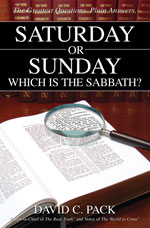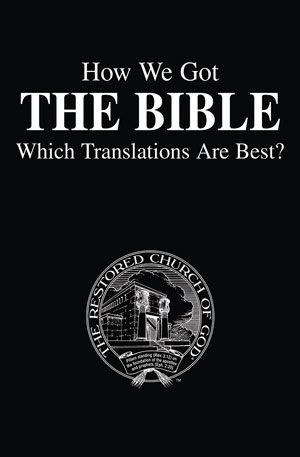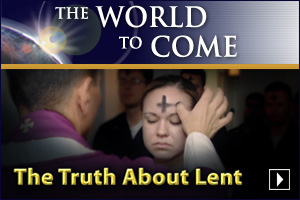Some denominations believe that speaking in Old King James (OKJ) vernacular is a sign of piety. This belief is akin to the belief that God and Christ should always be referred to by their Greek or Hebrew names, as written in the original Bible texts. Almost invariably, those who regularly speak in OKJ English seem to have a “holier than thou” attitude, much like the Pharisees of Christ’s day.
It is important to recognize that the Bible has been translated into many languages. Words that were translated, in 1611 (when the OKJ version was authorized), as “thee” and “thou,” both of which can be rendered today as “you,” may have the same foreign equivalents as they did nearly four centuries ago. (Unlike most other languages, English is constantly changing. Simple comparison of two dictionaries published a year apart confirms this fact.)
The OKJ version is merely flavored by the vernacular of that era. Had it been written 400 years previous, the language would have differed, just as it would if it were written today. Many translations are available today, each with an emphasis on different aspects of grammar, punctuation, semantics, etc. Some convey the original thoughts better than others. But one is not necessarily better than another, simply based on the language or vernacular used. (You may wish to read our book “How We Got the Bible – Which Translations Are Best?”)
One thing many fail to consider, when assuming the sanctity of OKJ English, is that even the words of the false prophets and heretics mentioned in the Bible—and even Satan himself—are written in that form: “…If thou be the Son of God, cast thyself down: for it is written, He shall give His angels charge concerning thee: and in their hands they shall bear thee up, lest at any time thou dash thy foot against a stone” (Matt. 4:6).
Besides showing that the ability to quote Scripture does not make one righteous, the above verse also reveals something else. Obviously, false prophets, heretics and Satan do not hold God’s Word in high esteem (nor would they have much regard for the King’s English). But the “thee”s and “thou”s are intact throughout. In other words, they represent the common usage of the language of the day. It is not the language that was inspired, but rather the truth of God’s Word.



















